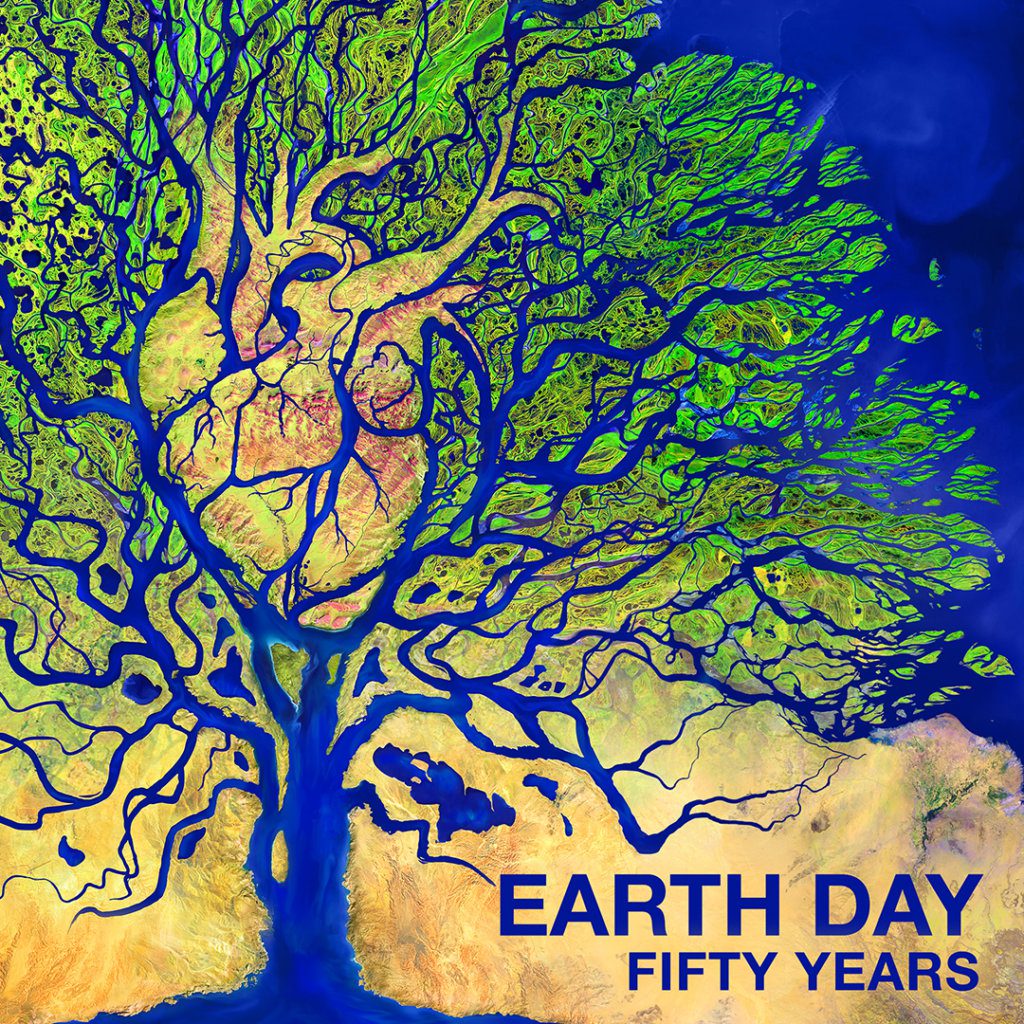Taking Earth Day to Heart
By • April 22, 2020 0 903

The spring, the summer,
The childing autumn, angry winter, change
Their wonted liveries, and the mazèd world,
By their increase, now knows not which is which
— “A Midsummer Night’s Dream,” Act 2, Scene 1
Earth Day, the brainchild of Sen. Gaylord Nelson (D-Wisconsin), began 50 years ago, on April 22, 1970. Full of hope for healing the planet, it helped to initiate positive changes in everyday acts like recycling, as well as governmental action in empowering the Environmental Protection Act, followed by a new Clean Air Act.
The event was one of several aftershocks that year of Woodstock the summer before, helping to set off a political and cultural march into the future that also created divisions in the body politic (which are still with us).
In the five decades since, as Earth Day became a worldwide movement, we have paid increasing attention to the extinction of species, the contamination of our earth’s atmosphere and climate change.
Above all, Earth Day is a day to embrace both nature and science. Maintaining the earth means managing — using but not using up — the resources we have.
This year, however, Earth Day is taking place as an unexpected and silent enemy attacks our bodies, throwing our comfort in nature and confidence in science into turmoil.
We are anxious, confused, fearful and depressed. Many are ill, many have died and many, thank goodness, have recovered. Some feel that we are turning a new chapter in our national history. What that will mean is yet unrevealed, a chrysalis of sorts. While confined to our homes, we seek out words of wisdom on how to behave, how to go forward to make things right.
We would do well to consider the words of William Shakespeare, whose birthday is tomorrow.
A focus on Shakespeare led Deepak Chopra, a doctor at the intersection of science and spirituality, to write recently: “Social isolation gives us time to examine our lives in a new light, suddenly faced with economic collapse, empty streets, current panic and future uncertainty, and death appearing out of nowhere — in other words, the conditions that confronted every person on a daily basis during the lifetime of Shakespeare. What feels horribly abnormal to us was routinely normal for him and every member of the human race in the 16th century.
“But if you put Shakespeare and the plague together, something mysterious emerges. Despite every threat of disease and death, crime, poverty, political oppression, and religious fanaticism … not to mention widespread illiteracy, no public sanitation, and no police force, these horrendous circumstances didn’t wipe out creativity, discovery, love, compassion, and a vision of higher ideals.”
We are grappling with this virus and will win the day, perhaps transformed along the way. Let us be aware that we can and will soldier on with our powers of creativity and love. Let us remember that the earth needs not us, but we need it.
Today is Earth Day. Take it to heart.

